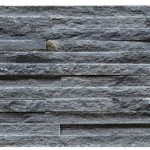Exploring the Beauty and Versatility of Cultured Quartz
Introduction:
Quartz is a fascinating mineral that has captivated humans for centuries with its beauty and unique properties. Cultured quartz, also known as engineered quartz, is a man-made alternative to natural quartz that offers a wide range of benefits and applications. In this article, we will delve into the world of cultured quartz, exploring its production process, characteristics, uses, and the advantages it offers over natural quartz.
History and Production Process of Cultured Quartz:
Cultured quartz is a manufactured product that is created by combining natural quartz crystals with resins, pigments, and other additives. The production process of cultured quartz involves several steps, starting with the selection of high-quality quartz crystals. These crystals are then crushed and blended with resins and pigments to create a uniform mixture.
The mixture is then poured into molds and subjected to high heat and pressure to form solid slabs of cultured quartz. These slabs are then polished to achieve a smooth, shiny surface that showcases the beauty of the quartz crystals within. The final product is a durable, non-porous material that is resistant to staining, scratching, and heat.
Characteristics of Cultured Quartz:

Cultured quartz shares many characteristics with natural quartz, but it also offers some unique qualities of its own. One of the key features of cultured quartz is its wide range of colors and patterns. Unlike natural quartz, which is limited in its color variations, cultured quartz can be customized to match any design aesthetic. From classic marble-like patterns to bold, vibrant hues, cultured quartz offers endless possibilities for creative expression.
Another important characteristic of cultured quartz is its durability. Thanks to the resin and additives used in its production, cultured quartz is highly resistant to scratches, stains, and heat. This makes it an ideal choice for high-traffic areas such as kitchens and bathrooms, where spills and accidents are common.
Additionally, cultured quartz is non-porous, meaning that it does not absorb liquids or harbor bacteria. This makes it a hygienic choice for countertops and other surfaces where cleanliness is a priority. Cultured quartz is also easy to clean and maintain, requiring only mild soap and water to keep it looking its best.
Uses of Cultured Quartz:
Cultured quartz has a wide range of uses in both residential and commercial settings. One of the most common applications of cultured quartz is in kitchen countertops. The durability and resistance to staining and heat make cultured quartz an ideal surface for food preparation areas. Its non-porous nature also makes it a hygienic choice for kitchens, as it does not harbor bacteria or mold.
Cultured quartz is also popular for bathroom vanities, where its resistance to moisture and durability are highly valued. In addition to countertops, cultured quartz can be used for backsplashes, shower surrounds, and flooring, adding a touch of elegance to any space.
In commercial settings, cultured quartz is often used for reception desks, conference tables, and other high-traffic areas. Its durability and ease of maintenance make it a practical choice for businesses looking to make a lasting impression on clients and customers.
Stone veneer for structural enhancements of Cultured Quartz Over Natural Quartz:
While natural quartz has its own unique beauty and appeal, cultured quartz offers several advantages that make it a popular choice for homeowners and designers. One of the main advantages of cultured quartz is its wide range of colors and patterns. Natural quartz is limited in its color variations, whereas cultured quartz can be customized to match any design vision. This flexibility allows for greater creativity and personalization in interior design projects.
Another advantage of cultured quartz is its durability. Natural quartz is prone to chipping and cracking, especially in high-traffic areas. Cultured quartz, on the other hand, is engineered to be highly resistant to damage, making it a long-lasting and practical choice for countertops and other surfaces.
Cultured quartz is also more affordable than natural quartz, making it a budget-friendly option for homeowners and businesses. The production process of cultured quartz allows for greater consistency in quality and color, resulting in a more cost-effective product compared to natural quartz.
Conclusion:
Cultured quartz is a versatile and durable material that offers a wide range of benefits for homeowners, designers, and businesses. From its wide range of colors and patterns to its durability and ease of maintenance, cultured quartz is a practical and stylish choice for a variety of applications. Whether used for kitchen countertops, bathroom vanities, or commercial surfaces, cultured quartz adds a touch of luxury and sophistication to any space. With its unique blend of beauty and functionality, cultured quartz is sure to continue captivating and inspiring us for years to come.